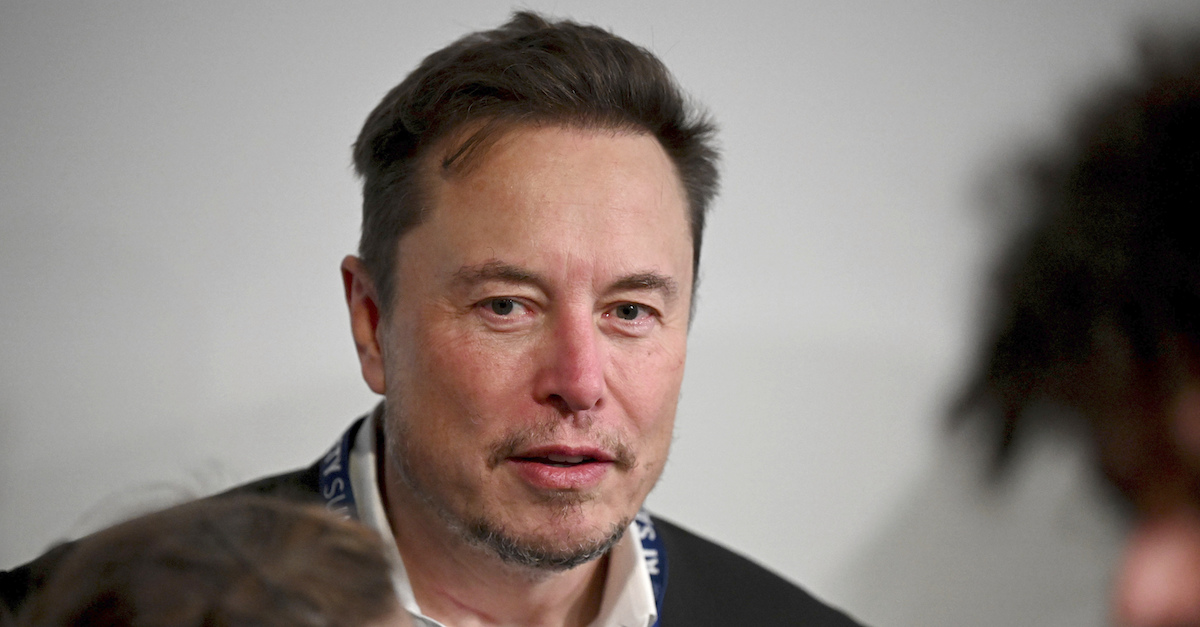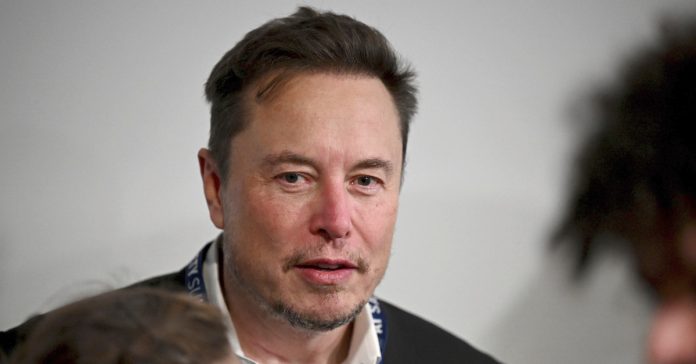
Elon Musk (Leon Neal/Pool Photo via AP, File)
The federal judge who was initially assigned last week to preside over a civil lawsuit fired Twitter executives filed against X’s Elon Musk disqualified himself from the case without explanation on Friday.
U.S. District Judge Haywood Gilliam of the Northern District of California issued an order sua sponte — that is, on his own, without either party in case lodging a request — to recuse himself.
“I, the undersigned judge of the court, finding myself disqualified in the above-entitled action, hereby recuse myself from this case and request that the case be reassigned pursuant to the Assignment Plan,” Gilliam wrote. “All pending dates of motions, pretrial conferences and trial are hereby vacated and will be reset by the newly assigned judge.”
While the Barack Obama-appointed judge added no specifics on the reason for the recusal, Bloomberg noted that Gilliam has handled at least one other Musk-related lawsuit.
On March 4, the fired plaintiffs sued Elon Musk and X in California federal court for $128 million, claiming that Musk “bragged” to his biographer about how he “planned to cheat Twitter’s executives out of their severance benefits in order to save himself $200 million” — all in service of making good on his alleged “lifetime of revenge” vow after being forced acquire the social media company.
The plaintiffs, Parag Agrawal, Ned Segal, Vijaya Gadde, and Sean Edgett, a collection of former top executives and a general counsel at what was then known as Twitter, alleged that Musk retaliated against them because they “appropriately and vigorously represented the interests of Twitter’s public shareholders throughout Musk’s wrongful attempt to renege on the deal.”
Pointing to biographer Walter Isaacson’s book on Musk, the lawsuit claimed that they were victims of the “Musk playbook.”
“An orderly transition had been scripted for the opening of the stock market that morning. The money would transfer, the stock would be delisted, and Musk would be in control. That would permit Agrawal and his top Twitter deputies to collect severance and have their stock options vest,” the book said, according to the lawsuit. “But Musk decided that he did not want that…. He would force a fast close that night. If his lawyers and bankers timed everything right, he could fire Agrawal and other top Twitter executives ‘for cause’ before their stock options could vest….”
According to the plaintiffs, the book described the “Musk playbook” of trying to “keep the money he owes other people, and force them to sue him.”
“Because Musk decided he didn’t want to pay Plaintiffs’ severance benefits, he simply fired them without reason, then made up fake cause and appointed employees of his various companies to uphold his decision,” the complaint continued.
However the case ends up, one thing is for certain: Judge Gilliam won’t play a role in its outcome.
Have a tip we should know? [email protected]

